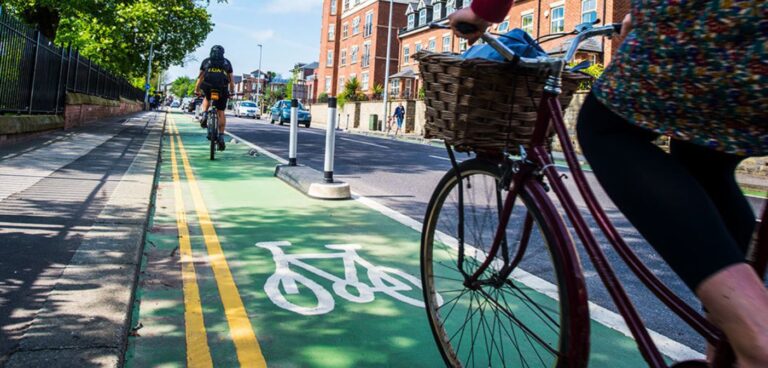Social prescriptions, including walking, wheeling and cycling, will be offered by GPs as part of a trial to improve mental and physical health and reduce disparities across the UK, it has been announced.
The UK government has awarded £12.7m in multiyear funding to 11 local authority areas in England. The funding will go towards several pilot projects in each location, including: adult cycle training, free bike loans and walking groups.
Other schemes include all-ability cycling taster days where people who may not have cycled before can try to in a friendly environment, or walking and cycling mental health groups where people can connect with their communities as they get active.
The pilots must be delivered alongside improved infrastructure so people feel safe to cycle and walk, the UK government said.
The 11 local authority areas that will trial social prescriptions are Bath and North East Somerset, Bradford, Cornwall, Cumbria, Doncaster, Gateshead, Leeds, Nottingham, Plymouth, Suffolk and Staffordshire.
The pilots, a commitment in the government’s Gear Change plan published in 2020, aim to evaluate the impact of cycling and walking on an individual’s health, such as reduced GP appointments and reliance on medication due to more physical activity.
For the first time, transport, active travel and health officials will work together toward a whole systems approach to health improvement and tackling health disparities.
UK active travel commissioner Chris Boardman said: “As a nation we need healthier, cheaper and more pleasant ways to get around for everyday trips.
“Active Travel England’s mission is to ensure millions of people nationwide can do just that – so it’s easier to leave the car at home and to enjoy the benefits that come with it.
“Moving more will lead to a healthier nation, a reduced burden on the NHS, less cancer, heart disease and diabetes, as well as huge cost savings.
“This trial aims to build on existing evidence to show how bringing transport, active travel and health together can make a positive impact on communities across England.
The pilots will be delivered between 2022 and 2025 with on-going monitoring and evaluation to support continued learning.





